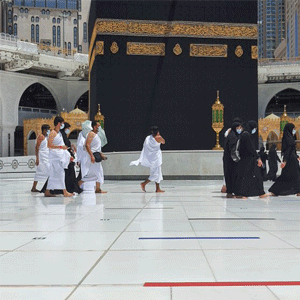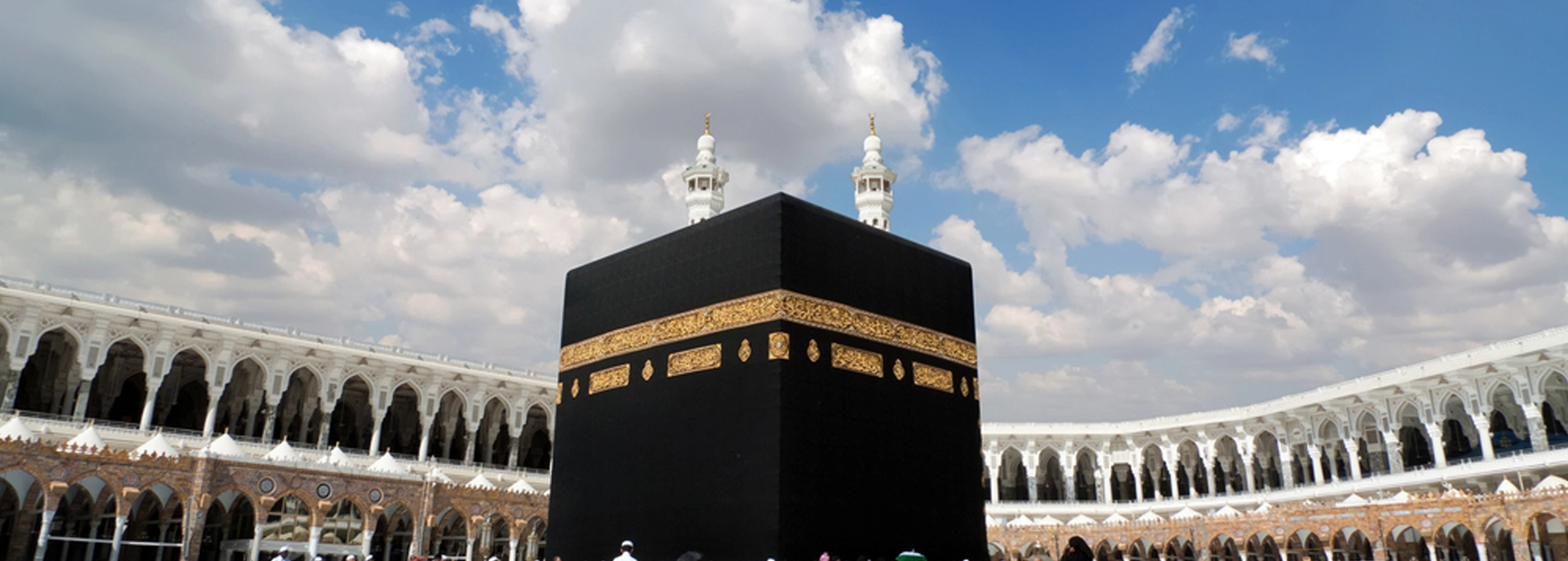Hajj 2025
Hajj is one of the five pillars of Islam and a profound spiritual journey that every Muslim dreams of completing. At Hajj Umrah waale, we specialize in providing seamless and affordable Hajj packages to make your pilgrimage stress-free and memorable. With years of experience, we cater to all your travel, accommodation, and guidance needs, ensuring you focus entirely on your ibadah. Discover our comprehensive Hajj services, including visa processing, flights, comfortable accommodations near the Haram, and expert guides to help you perform rituals correctly.
Developing a Sense of Unity
Hajj is the gathering of Muslims from all corners of the world, irrespective of their social, economic, or cultural backgrounds. This congregation fosters a sense of unity and brotherhood among Muslims, breaking the barriers of language, nationality, and race. The shared experience of standing shoulder to shoulder, dressed in simple white garments, emphasizes the equality and oneness of humanity. This transformative realization fosters a deep sense of compassion and empathy, leading to a greater understanding and acceptance of others.
Reconnecting with Faith
Hajj allows Muslims to detach themselves from the distractions of worldly life and focus solely on strengthening their connection with Allah. This journey prompts deep introspection, self-reflection, and a process of purifying one's heart and mind. The strenuous physical and spiritual challenges during Hajj call for immense patience, perseverance, and reliance on Allah's mercy. By rekindling their faith and seeking forgiveness for past transgressions, Muslims experience a profound transformation that rejuvenates their devotion to Allah.
Submission and Surrender
Hajj demands complete submission and surrender to Allah's commands. Each ritual commemorates a specific event in Islamic history, reminding the pilgrims of their duty to emulate the Prophets and their companions. From performing Tawaf (circumambulation) around the Kaaba, to engaging in Sa'i (running between hills), and culminating in the standing at Mount Arafat, every act of Hajj symbolizes one's complete surrender to Allah's will. This surrender instills a profound sense of humility, breaking down one's ego and fostering a more authentic and devoted relationship with Allah.
Lessons in Patience and Self-Discipline
Hajj is a journey that necessitates immense patience, self-control, and discipline. The physical hardships, long queues, crowded spaces, and challenging weather conditions all test the resilience of the pilgrims. By enduring these challenges with patience and fortitude, Muslims develop inner strength, perseverance, and the ability to remain composed in the face of adversity. This newfound patience extends beyond the Hajj pilgrimage, allowing individuals to navigate through life's difficulties with a greater sense of calm and steadfastness.
Renewed Commitment to Good Deeds
Completing the Hajj pilgrimage marks a fresh beginning for many Muslims. It serves as a catalyst for positive change, motivating individuals to live a life that adheres to Islamic principles and values. Muslims return from Hajj with a renewed commitment to practicing good deeds, seeking knowledge, and contributing to their communities. This transformative experience encourages individuals to rectify past mistakes, reconcile broken relationships, and become active participants in promoting social justice and compassion.
Conclusion
Hajj holds immense transformative power that enables Muslims to shed their worldly attachments and strengthen their spiritual connection with Allah. The rituals of Hajj , coupled with the hardships endured, instill a sense of unity, humility, and self-discipline in the hearts of pilgrims. The spiritual and personal growth experienced during this journey empowers individuals to lead a life grounded in faith, compassion, and righteousness. Through Hajj , Muslims undergo a profound transformation that impacts not only themselves but also their families, communities, and societies at large.
How to Perform Hajj
Hajj is the fifth and final pillar of Islam that is obligatory on all financially and physically capable Muslims, at least once in their lifetime. It is a sacred journey to the holy city of Mecca in Saudi Arabia, where millions of Muslims from around the world gather to worship and seek forgiveness from Allah. Performing Hajj is a significant and life-altering experience that requires thorough planning, preparation, and understanding of the rituals involved. This article serves as a step-by-step guide on how to perform Hajj .
Learn about the Rituals
Before embarking on the journey, it is crucial to educate yourself about the rituals of Hajj . Research and read books or reliable online resources that thoroughly explain the different aspects of Hajj , including the historical significance, prescribed rituals, and the sequence in which they occur. Understanding these rituals will not only help you mentally prepare but also enable you to perform them correctly.
Seek Knowledge
Attend Hajj seminars or lectures conducted by knowledgeable scholars or Imams who specialize in Hajj . These sessions will provide valuable insights, answer your questions, and guide you through the practical aspects of Hajj . Use this opportunity to clarify any doubts you may have about the rituals or general etiquettes during Hajj .
Plan your Journey
Hajj requires meticulous planning due to the sheer number of pilgrims and the limited accommodation in Mecca. Decide whether you'll be going for Hajj individually or with a group, and make the necessary travel arrangements well in advance. Consider factors such as accommodation, transportation, and availability of services during your stay in Mecca and Madinah.
Obtain Necessary Documents
Ensure that you have a valid passport and all the required visas for entry into Saudi Arabia. Many countries have appointed Hajj ministries or agencies that handle the visa application process specifically for Hajj . Contact the relevant authorities to obtain the necessary documents and fulfill the visa requirements.
Physical Preparation
Hajj can be physically demanding, involving rigorous physical activities such as walking long distances and standing for extended periods under the scorching sun. Prior to embarking on your journey, engage in regular physical exercise to improve stamina and build endurance. Walking, jogging, and light stretching exercises are recommended to prepare your body for the physical challenges of Hajj .
Mental Preparation
Hajj is not simply a physical journey; it is also a test of patience, perseverance, and faith. Mentally prepare yourself for the strain and discomfort that can arise due to the sheer number of people, overcrowded spaces, and the physical exertion involved. Remember that Hajj is a time for reflection, seeking forgiveness, and intense worship, so maintain a positive mindset and focus on your spiritual goals.
Arriving in Mecca
Upon arriving in Mecca, enter the state of Ihram, which is a sacred state of purity and intention. Men wear two white, seamless garments, while women adhere to the Islamic dress code which includes loose-fitting and modest clothing. Perform the Umrah , a lesser pilgrimage that involves Tawaf (circumambulation of the Kaaba) and Sa'i (walking between the hills of Safa and Marwa).
Main Pilgrimage
The main Hajj rituals begin on the 8th of Dhul-Hijjah. Join millions of other pilgrims in Mina, a small town near Mecca, and then proceed to Arafat, where pilgrims gather on the ninth day of Dhul-Hijjah. Stay in Arafat until sunset, praying, reciting the Quran, and seeking forgiveness. From Arafat, move to Muzdalifah after sunset and spend the night there, collecting pebbles for the symbolic stoning of Satan.
Stoning the Devil
On the 10th and 11th of Dhul-Hijjah, perform the ritual of stoning the devil in Mina. This involves throwing pebbles at three designated pillars that represent Satan's temptations against Prophet Ibrahim (Abraham). Exercise caution and follow the designated paths, as this ritual becomes crowded and needs to be approached with patience and care.
Tawaf al-Ifadah
After stoning the devil, proceed to Mecca to perform Tawaf al-Ifadah, also known as the "Farewell Tawaf." This Tawaf involves circumambulating the Kaaba and is a critical part of completing the Hajj pilgrimage. Remember to take your time and perform the Tawaf with all due reverence and devotion.
Farewell
After completing Tawaf al-Ifadah, you have completed
the mandatory rituals of Hajj . However, it is highly recommended to stay in Mecca and
continue performing voluntary acts of worship. Take the opportunity to visit other holy
sites such as the Prophet's Mosque in Madinah if time permits.
Performing Hajj is a deeply spiritual and transformative
experience for Muslims. It requires profound devotion, patience, and a sincere
commitment to worshipping Allah. By planning ahead, educating oneself, and fulfilling
the prescribed rituals with utmost sincerity, a pilgrim can complete Hajj successfully
and gain a deeper understanding of their faith. May Allah accept the Hajj of all those
who undertake this remarkable journey.
Here are the 18 steps of Hajj at a glance:

Preparation and Intention

Enter state of Ihram
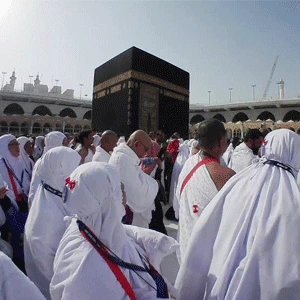
Tawaf x7
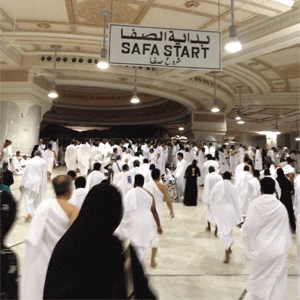
Safa and Marwa
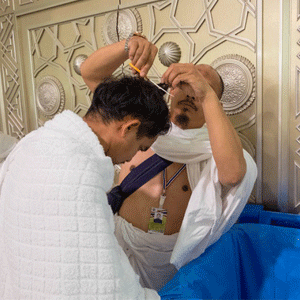
Clip/Shave Hair (Umrah ends)
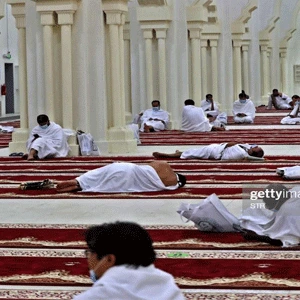
Resting and Praying
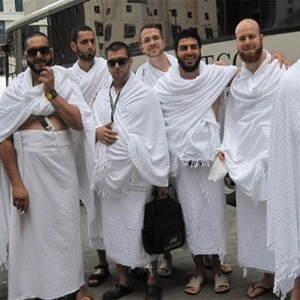
Enter state of Ihram
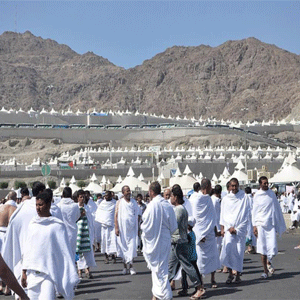
Arrive at Mina
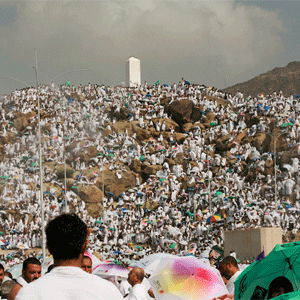
Day of ‘Arafah
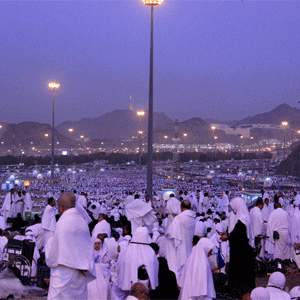
Muzdalifah (under the night sky)
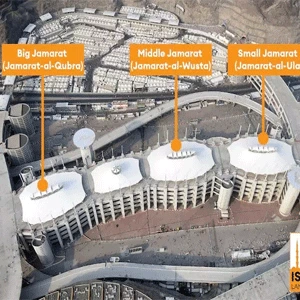
Rami (stoning of the devil)

Qurbani
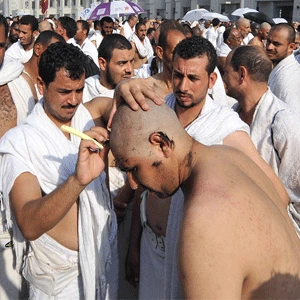
Shave Head
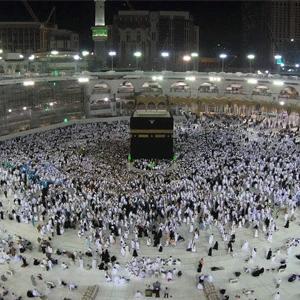
Tawaf al-Ifadha
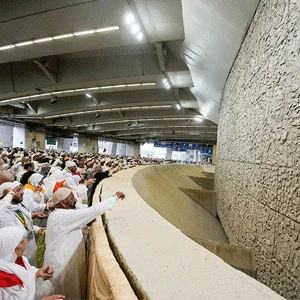
Rami (stoning of the devil)
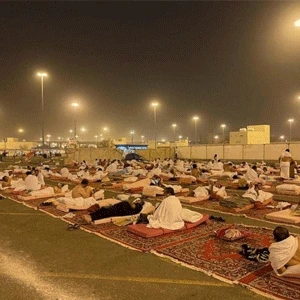
Spend night at Mina
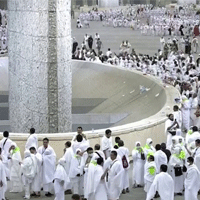
Rami (stoning of the devil)
